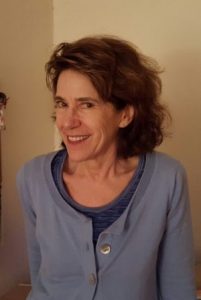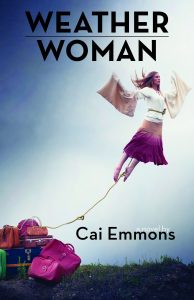Camping: A Writer’s Strategy for Staying Observant
 I am just back from a weekend camping trip to the Oregon dunes with my partner Paul, also a writer. We didn’t plan to write on this trip; we simply wanted some time away in nature, sleeping in a tent. This was car camping, driving with a packed car to a Forest Service site not far off the main road, a place equipped with fire pits and public restrooms, plenty of other campers, and often many children. It wouldn’t be solitude, we knew, nor would it be wilderness, but it would be a welcome break from routine.
I am just back from a weekend camping trip to the Oregon dunes with my partner Paul, also a writer. We didn’t plan to write on this trip; we simply wanted some time away in nature, sleeping in a tent. This was car camping, driving with a packed car to a Forest Service site not far off the main road, a place equipped with fire pits and public restrooms, plenty of other campers, and often many children. It wouldn’t be solitude, we knew, nor would it be wilderness, but it would be a welcome break from routine.
We had chosen this weekend’s campground because it borders a vast stretch of dunes, an otherworldly landscape that draws us back every couple of years. When I first saw these dunes they brought to mind the Sahara, undulations of pristine sand, some rising into small hills, stretching as far as the eye can see. Patches of beach grass dot the landscape, and once you begin walking you see small “oases” of trees. The signs tell you it’s a challenging six-mile round trip hike to the ocean and, due to the difficulty of trudging over dry sand, it might take up to four hours, depending on the wind and sand conditions. The last stretch of the hike passes through a wind-whipped coastal forest of pines and Sitka spruce, then you emerge at the ocean.
On Saturday morning we took our time waking, drinking coffee, discussing the sounds we’d been hearing throughout the night: the arrival of other campers, a generator from one of the RVs, a Coast Guard helicopter making the rounds. This was not, we reminded ourselves, wilderness camping, but we were happy nonetheless; nothing was pulling on us and we could do as we liked. No need to shower, answer email; no grocery lists or social obligations. We made a leisurely breakfast of cheesy scrambled eggs with chopped tomatoes and packed a backpack with water, snacks, sunscreen.
At 10:00 am we set out on our cross-dune trek. Amazingly, we were the only ones out. There was little wind to speak of and it wasn’t hot yet. The only tracks in the sand were those we later identified as porcupine pawprints and tiny scribbles that were the work of insect larvae. Everything drew our attention: the dancing beachgrasses, the occasional stalwart wildflower, the sensual swoop of the sand. Alone out there we felt like explorers, intrepid, certain we were seeing things no one else had ever seen. We stopped frequently to take pictures of things whose beauty we knew we were not skilled enough to capture, wanting to preserve the sense of awe and contentment we felt. We were doing what the Japanese call Shinrin-yoku, “forest bathing,” appreciating the natural world and allowing it to soothe us, as well as open our eyes.
When we reached the ocean, we didn’t spend long there; it was the dunes that really gripped our imaginations. As we were turning back, a man and a woman appeared. The woman, dressed in eye-popping magenta and orange, and sporting a backpack, set off down the beach. The man, entirely in pale beige, carried nothing. Nodding at us, he perched on a log. The two weren’t together, but Paul decided the man was in hot pursuit of the woman. We laughed at this speculation and began the walk home.
The wind had come up by then, making the walking more difficult. We were still alone, but then we noticed the beige-clad man, some distance away, walking briskly along a high ridge parallel to us. He was overtaking us, and we wondered why he was moving more quickly than we were. Was the sand harder up there? Was he more fit? And why wasn’t he following the posts that designated the most direct route across the dunes? Once we noticed him, he dominated our consciousness, and we became less attentive to the natural world.
Back at our campsite in the early afternoon, pleasantly tired, we sat in our camp chairs reading, alert to the arrival of new groups of campers, particularly at the site adjacent to us where a father was setting up camp with five or six kids. We could hear him barking orders not very kindly. Across the road from us a middle-aged couple returned to their RV on a motorcycle.
Paul and I were both watching and eavesdropping shamelessly by now. From next door floated the names of some of the kids: Willem, Bubba, Gwen. There was a reference to Mom and her truck. We discussed the dual streaks of the barking father’s nature, and speculated on the difficulty of parenting so many kids. Across the way another young family had arrived, and we took note of the way they allowed their toddler to fall and pick herself up, a parenting style we admired. We were thoroughly engrossed in the project of observing this temporary human community we’d become part of. We were uniquely positioned to observe behaviors that are usually kept hidden.
All in close range of one another, operating in wall-less spaces, we were nevertheless behaving unguardedly, much the same as we would in our own homes. It was as if there was an unspoken rule that, whatever we saw or heard, we wouldn’t tell anyone else. Paul and I, having had our powers of observation primed on our morning walk, were sponges, taking it all in. We weren’t writing, but our writing brains—he’s a playwright; I’m a novelist—were happily activated, reveling in the gift of being able to watch without inhibition.
I had not gone camping expecting it to be such fertile ground for my work, but now it seems obvious. When camping, your life is simplified; your observational skills are sharpened; whether you’re observing the “forest bath” or the human community—or both—it is all likely to become fodder for what you write.
—
Cai Emmons is the author of five books of fiction: the novels His Mother’s Son, The Stylist, Weather Woman, and the forthcoming Sinking Islands, as well as a collection of short stories called Vanishing, winter of the Leapfrog Press Fiction Contest, to be published in early 2020. His Mother’s Son won the Ken Kesey Award for the Novel; Weather Woman was awarded a Nautilus Book Award and was shortlisted for the Eric Hoffer Grand Prize. Cai’s short work has appeared in such publications as TriQuarterly, Narrative, Arts and Culture, LitHub, and Electric Literature, among others.
Before turning to fiction, Cai was a dramatist. Her early plays (Mergatroid and When Petulia Comes) were staged in New York at Playwrights Horizons, Theatre Genesis, and The American Place Theater. She studied film at NYU’s Tisch School of the Arts where her ‘thesis film’ won a Student Academy Award. In New York she wrote, directed, and edited independent and documentary films (aired on A&E and PBS); subsequently she moved to Los Angeles where she wrote feature-length screenplays (optioned but unproduced) and several produced teleplays, including episodes of the CBS drama “The Trials of Rosie O’Neill.”
In addition to a bachelor’s degree from Yale University, Cai holds two MFAs, one in film from New York University, one in fiction from the University of Oregon. She has taught fiction, screenwriting, and filmmaking at various colleges and universities including UCLA, the University of Southern California, and the University of Oregon. She is now a full-time writer.
Twitter: @caiemmons
Facebook: @caiemmons
Weather Woman Page: @WeatherWomanNovel #WeatherWomanNovel
Instagram: @caiemmons
Website www.caiemmons.com or www.caiemmonsauthor.com
About WEATHER WOMAN
 Thirty-year-old Bronwyn Artair, feeling out of place in her doctoral program in Atmospheric Sciences at MIT, drops out and takes a job as a TV meteorologist, much to the dismay of her mentor, Diane Fenwick. After a year of living alone in Southern New Hampshire, enduring the indignities of her job, and being dumped by her boyfriend, she discovers her deep connection to the natural world has given her an ability to affect natural forces.
Thirty-year-old Bronwyn Artair, feeling out of place in her doctoral program in Atmospheric Sciences at MIT, drops out and takes a job as a TV meteorologist, much to the dismay of her mentor, Diane Fenwick. After a year of living alone in Southern New Hampshire, enduring the indignities of her job, and being dumped by her boyfriend, she discovers her deep connection to the natural world has given her an ability to affect natural forces.
When she finally accepts she really possesses this startling capability, she must then negotiate a new relationship to the world. Who will she tell? Who will believe her? Most importantly, how will she put this new skill of hers to use?
As she seeks answers to these questions, she travels to Kansas to see the tornado maverick she worships; falls in love with Matt, the tabloid journalist who has come to investigate her; visits fires raging out of control in Los Angeles; and eventually voyages with Matt and Diane to the methane fields of Siberia. A woman experiencing power for the first time in her life, she must figure out what she can do for the world without hurting it further. The story poses questions about science and intuition, women and power, and what the earth needs from humans.
Buy the novel HERE
Category: Contemporary Women Writers, How To and Tips
























